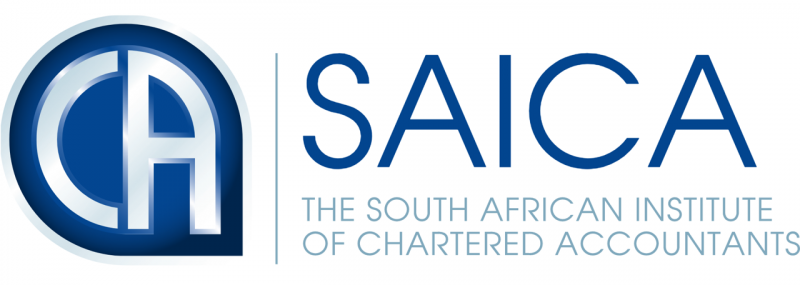CATEGORIES
- (3) Negotiating Tax Debt and Payment Arrangements with SARS
- (2)Account / Profile
- (544)Accounting
- (2)Accounting and Finance
- (27)Audit
- (156)Auditing and Assurance
- (1)Business
- (1)Business Management
- (3)Business Rescue
- (101)CIPC
- (7)Compliance
- (18)Ethics and Professionalism
- (46)Financial Reporting
- (1)Government Funding Applications
- (4)Guides
- (1)Individuals Tax
- (25)Law
- (37)Legal and Compliance
- (2)Management
- (5)Miscellaneous
- (27)Money Laundering
- (1)Personal & Professional Development
- (2)Practice Management
- (2)Professional Ethics
- (3)Public Sector
- (145)Regulatory Compliance and Legislation
- (41)SARS Issues
- (27)Sustainability Reporting
- (36)Tax
- (1)Tax Update
- (7)Technology
- (1)Wills, Estates & Trusts
- Show All
SAICA: AUP Regulatory report for Legal Practitioner’s Refund of Bank charges and Audit fees
- 03 November 2023
- Accounting
- South African Accounting Academy

The Legal Practitioners Fidelity Fund (LPFF) published a directive on 1 November 2023, which prescribes the utilisation of this AUP report from 1 November 2023: Refer to our previous technical alert dated 27 March 2023 on this topic. The LPFF is working on an article regarding transitional arrangements.
This SAICA publication follows our previous technical alert dated 24 April 2023, which allowed an optional method to claim back bank charges and audit fees – until SAICA’s publication of the regulatory AUP Report in this regard.
Until such time as the Application Form is updated to reflect the guidance in the LPFF directive, auditors are advised to cross out the “CERTIFICATE BY AUDITOR” section on the Application Form and to refer to the agreed-upon procedures report attached to the Application Form.
The illustrative agreed-upon procedures report is based on the application form prescribed by the Legal Practitioners Fidelity Fund (LPFF) to be used for claims for refunds of bank charges and audit fees that can be downloaded from the LPFF website https://www.fidfund.co.za/.
The utilization of the attached agreed-upon procedures report is required in terms of a directive of the LPFF https://www.fidfund.co.za/wp-content/uploads/2023/11/LPFF-Directive.pdf.
The application for a refund must be made by the legal practitioner firm by not later than the end of the calendar year after that in which the financial year in question ends, failing which such application will not be considered, except in exceptional cases (these exceptional cases must be motivated/approved by the Legal Practice Council).
The LPFF requires the agreed-upon procedures engagement to be performed by the auditor of the legal practitioner firm who performed the assurance engagement on the trust accounts of the legal practitioner firm. For context, reference is made to the assurance report on the legal practitioner’s trust accounts in the cover letter accompanying the agreed-upon procedures report.
This agreed-upon procedures report is illustrative in nature. Editorial changes may be made to the report, where necessary, to meet particular audit firm reporting policies or preferences, provided the changes are consistent with ISRS 4400 (Revised), Agreed-Upon Procedures Engagements, the purpose of the engagement and the terms of the engagement.
It is important to note, however, that the LPFF and Legal Practice Council (LPC) have acknowledged that the procedures in this illustrative report are appropriate for the engagement. As such, substantive changes to the illustrative procedures may result in application forms for the refund of bank charges and audit fees not being accepted by the LPFF and LPC.
The agreed-upon procedures report is effective for agreed-upon procedures engagements beginning on or after 1 November 2023. Early application of the report is permitted.
Click here to download the Illustrative Regulatory Report:
Relevance to Auditors, Independent Reviewers & Accountants:
-
The Legal Practitioners Act is yet another piece of legislation that your clients must comply with, and which you must assess compliance with. If they don’t comply with the relevant laws and regulations, you have certain reporting obligations in terms of NOCLAR (Non-Compliance with Laws And Regulations) – this could include reporting to management, qualifying your audit opinion, reporting a Reportable Irregularity, etc.
-
As an auditor, you need to consider and assess compliance with the LPA and Guidance documents issued by the LPFF.
-
As an assurance practitioner, you should provide the correct revised AUP Report.
-
As an accountant, advise your clients who are legal practitioners on compliance with the LPA and adherence to the latest guidelines issued by the LPFF and SAICA.
Relevance to Your Clients:
-
A legal practitioner has a duty to comply with the Legal Practitioners Act.
-
Your clients who are legal practitioners, must not only comply with the LPA, but they also have to adhere to the latest guidance documents issued by the LPFF and SAICA.






